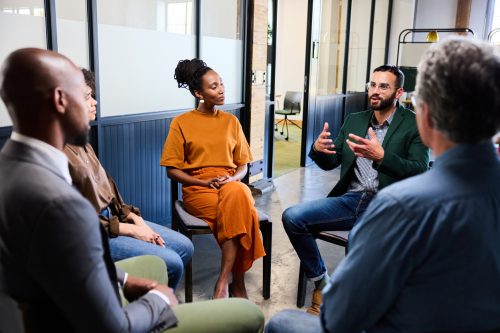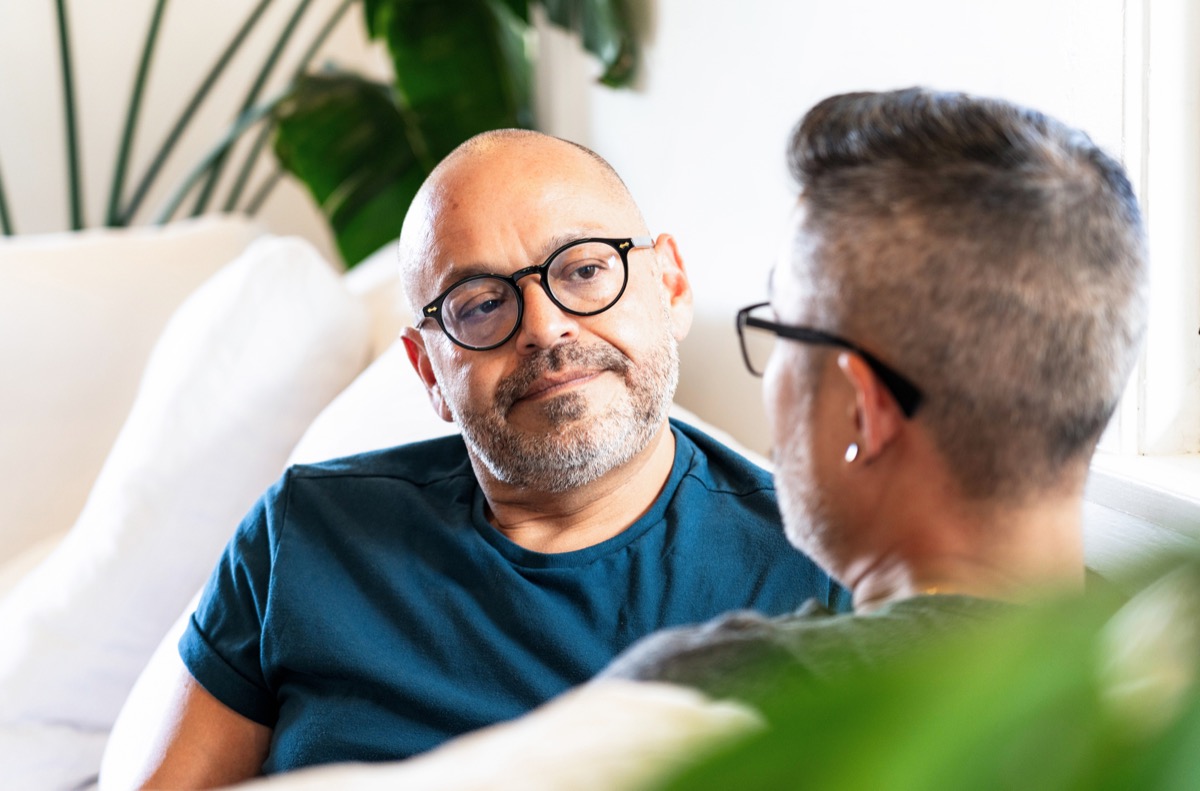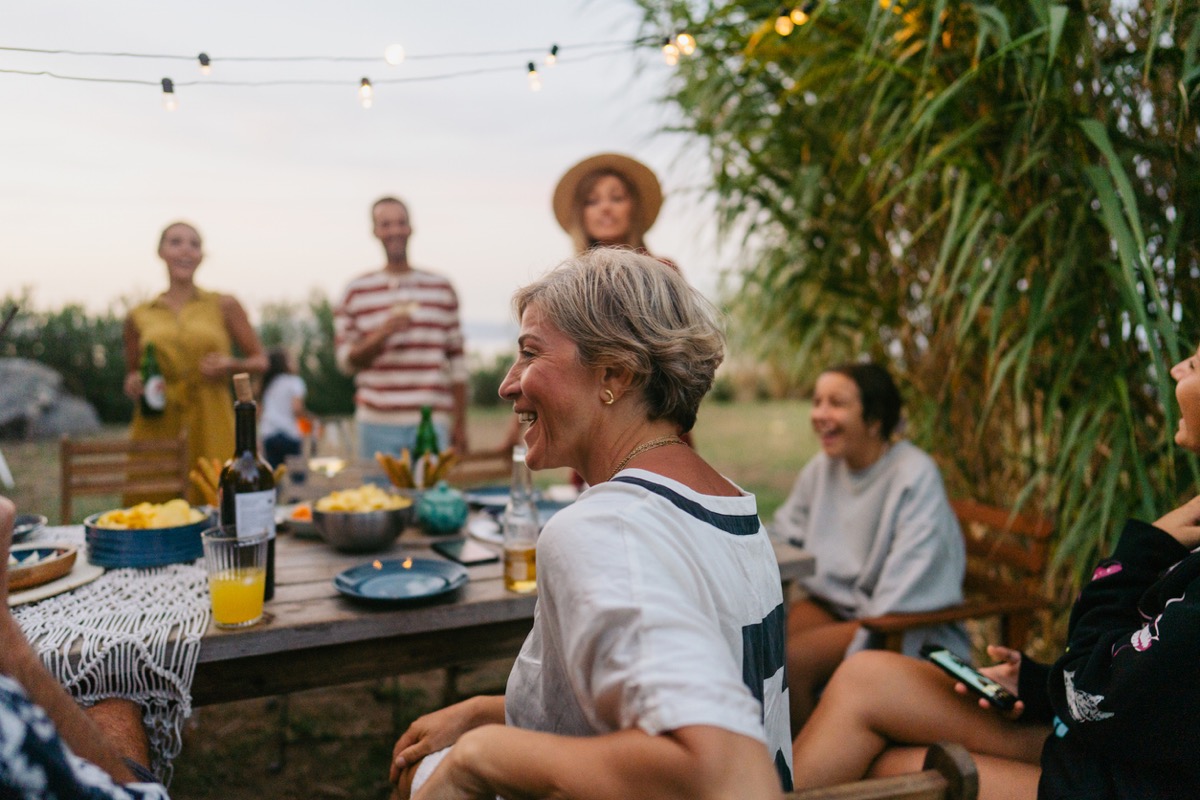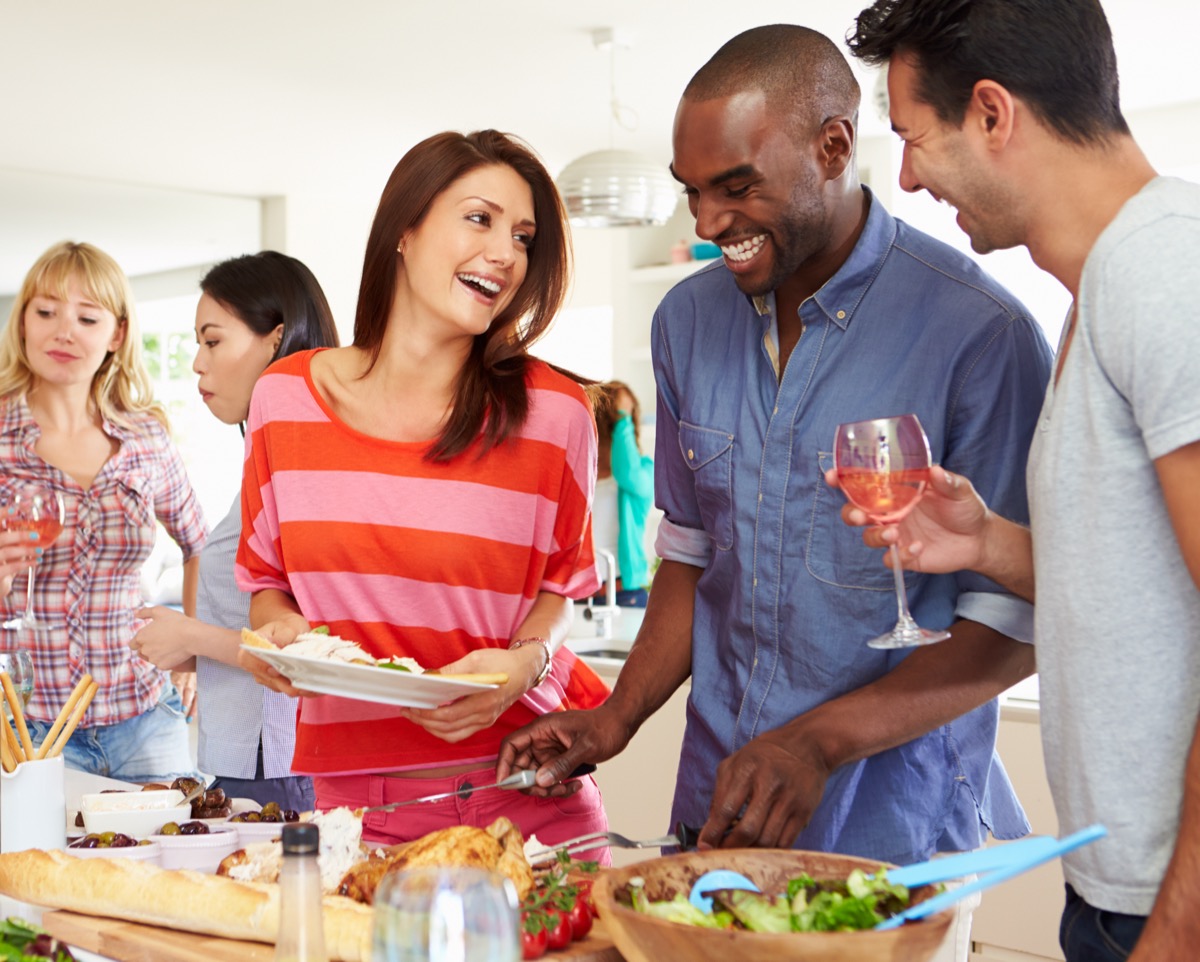How to Improve Your Social Skills at Any Age

Strong social skills are the building blocks of healthy relationships, paving the way for long-term connections with others and even personal growth. Whether it’s in the workplace, at home with family, or among friends, being able to communicate effectively with those in your daily life is a common need we all share. That said, not everyone finds socializing with people to be easy.
Of course, the occasional awkward exchange or odd interaction is hardly a cause for concern. But, if you find that you often have a difficult time talking to people, making friends, or navigating your way around an office setting, it might be time to brush up on your social skills. And the great news? You can improve your social skills at any age! Consider the expert input below to understand why being able to connect with others is so important, then follow the steps to enhance your own verbal and nonverbal communication skills.
RELATED: 5 Highly Effective Conflict Resolution Strategies to Make Work a Breeze.
What are Social Skills?

Social skills are a diverse set of tools we use to communicate. Some of the most common and useful ones include “listening, conversing, empathizing, smiling, developing friendships, and resolving conflict,” says Kasley Killam, MPH, a Harvard-trained social scientist and author of The Art and Science of Connection. Understanding different social skills can help us identify our strengths and areas for improvement.
Social wellness is not just about communication, trust, and conflict management; it’s also about creating boundaries that encourage these aspects. Research from the University of Nebraska Omaha states that having good social wellness is critical to building emotional resilience.
Why Lacking Social Skills Can Have a Negative Impact
No matter what age you are, having good social skills can positively impact your ability to communicate with others and open doors to great opportunities. On the other hand, failing to develop these skills can have negative consequences.
“Struggling with social skills can impair your ability to form and maintain healthy relationships, which, in turn, takes a toll on physical, mental, and social health,” explains Killam.
RELATED: How to Apologize to a Friend, According to Relationship Experts.
6 Ways to Improve Your Social Skills
1. Practice Active Listening

Active listening is the act of taking the time to really listen to what someone is saying and being fully present in the conversation while showing interest. It also involves being mindful of your emotional reactions and avoiding distractions. This is an important social skill because it can help avoid misunderstandings, resolve issues, build trust, and strengthen relationships.
“Take time to listen to every word someone is saying and try to put yourself in their shoes,” advises Ernesto Lira de la Rosa, a psychologist and media advisor for the Hope for Depression Research Foundation. “You also want to pay attention to your non-verbal behaviors and ensure that you are nodding your head if you agree with something. It can be helpful to maintain good eye contact with the other person when they are speaking, as this also communicates interest.”
Think of it like a game, says Ben Bernstein, PhD, a psychologist at Silver Hill Hospital. “Repeat back the important part of what someone shared during a conversation and ask questions that are related instead of turning the topic back to yourself.”
2. Try Mindful Breathing

Feeling uneasy in social settings is normal for many people, but mindful breathing can help by reducing your stress and increasing self-awareness. Focusing on breathing can also calm your nervous system and lower your social anxiety.
“For some people, what gets in the way of having strong relationships is a short temper or a tendency to leave conversations when they become too intense,” Bernstein explains. “Practicing mindful breathing can help someone to better tolerate their own discomfort in a conversation or relationship, which can improve social skills.”
3. Build Confidence

Everyone wants to feel good about themselves, but socializing can trigger feelings of self-doubt because it allows you to see things you may need to work on. Lack of confidence often contributes to poor social skills, but there are ways to build up your confidence.
Steven Rosenberg, PhD, a psychotherapist and behavioral specialist, suggests trying the following steps before an event:
- “Look in the mirror and say positive messages, such as ‘This is going to be a great event, and you’re going to have fun.’”
- “Visualize yourself being more social and outgoing. Picture yourself being comfortable at the event and not making any mistakes. When you imagine yourself doing something, you are actually rehearsing it.”
RELATED: How to Make Friends as an Adult: 16 Steps to Follow.
4. Observe Others in Conversation

How someone reacts—verbally and nonverbally—when conversing sends insightful messages about who they are and how they feel. Paying attention to those cues can help you develop empathy and a better understanding of someone.
“Start by noticing their nonverbal behaviors and see how people tend to mirror each other when interacting,” Lira de la Rosa explains.
“You can also pay attention to how often someone interrupts the other person, the types of questions they ask, and the types of answers and responses they give to each other.”
5. Ask Open-Ended Questions

Asking open-ended questions is an effective way to put others at ease, learn more about someone, and, most importantly, build a strong rapport with work colleagues, classmates, or new acquaintances.
“Open-ended questions are different from closed-ended questions that lead to ‘yes’ or ‘no’ answers,” Lira de la Rosa says. “For example, instead of asking, ‘Did you have dinner last night?’ you can say, ‘What did you have for dinner last night?'”
These types of conversation starters can be empowering as they allow others to freely express their thoughts, opinions, and ideas with you.
6. Find Common Ground

According to Rosenberg, joining a group that shares your interests is a great way to boost social skills at any age.
It can be much easier to feel relaxed and comfortable around others when you have something in common. An interest like a love of movies or having the same hobby can make a difference when it comes to striking up a conversation. You can develop a strong connection and form a deep bond.
“Be it a craft like knitting or a sport like baseball, being with people who share the same interest as you makes socializing less intimidating since everyone in the group has something in common, namely the activity,” Rosenberg says.